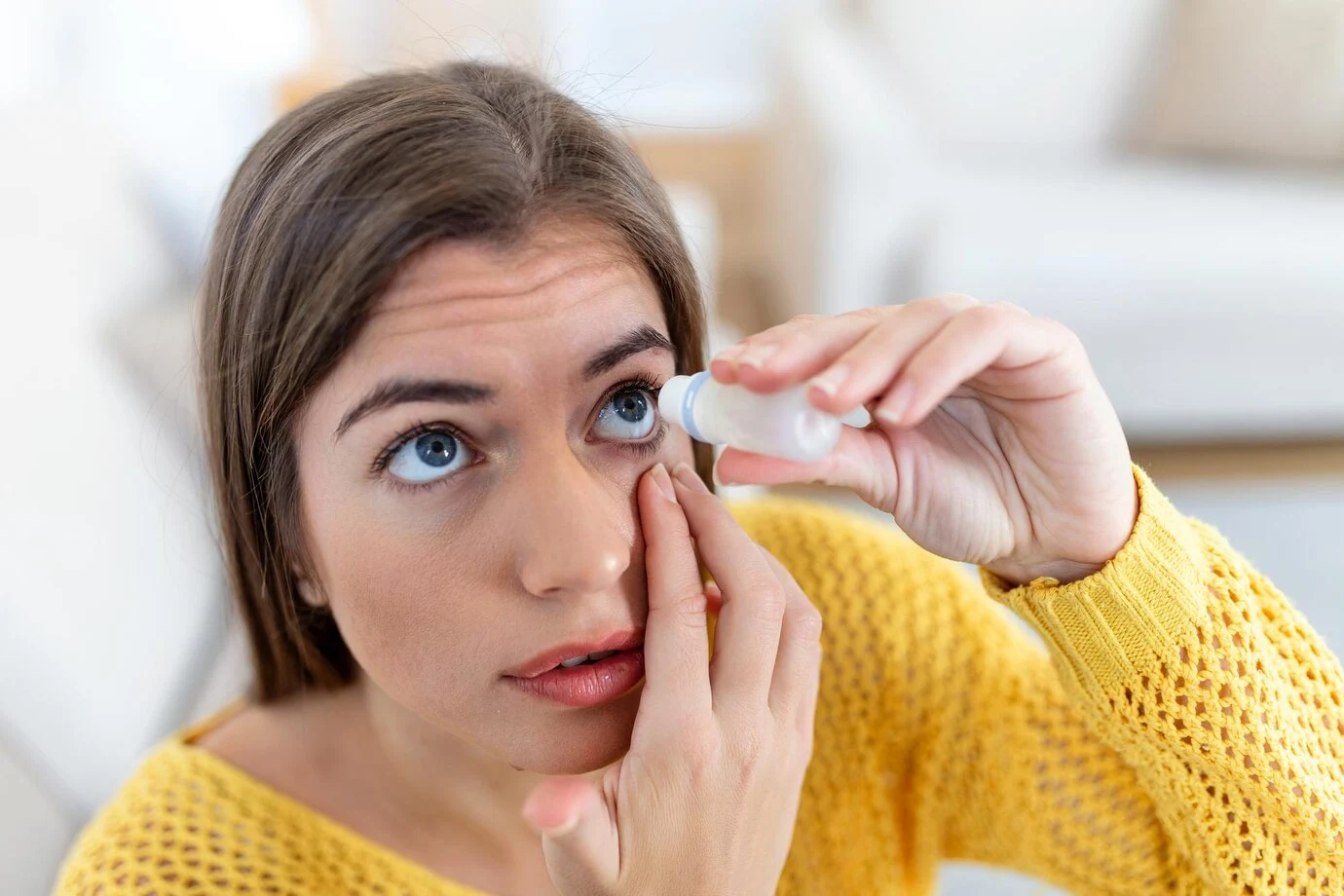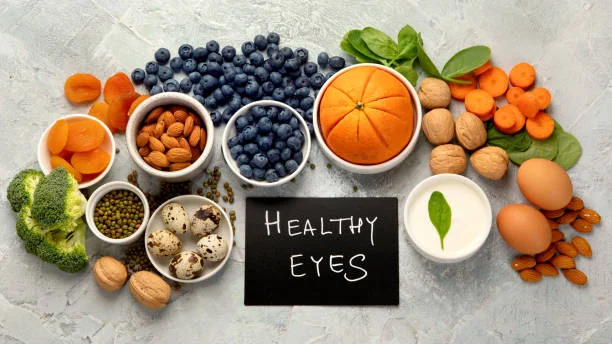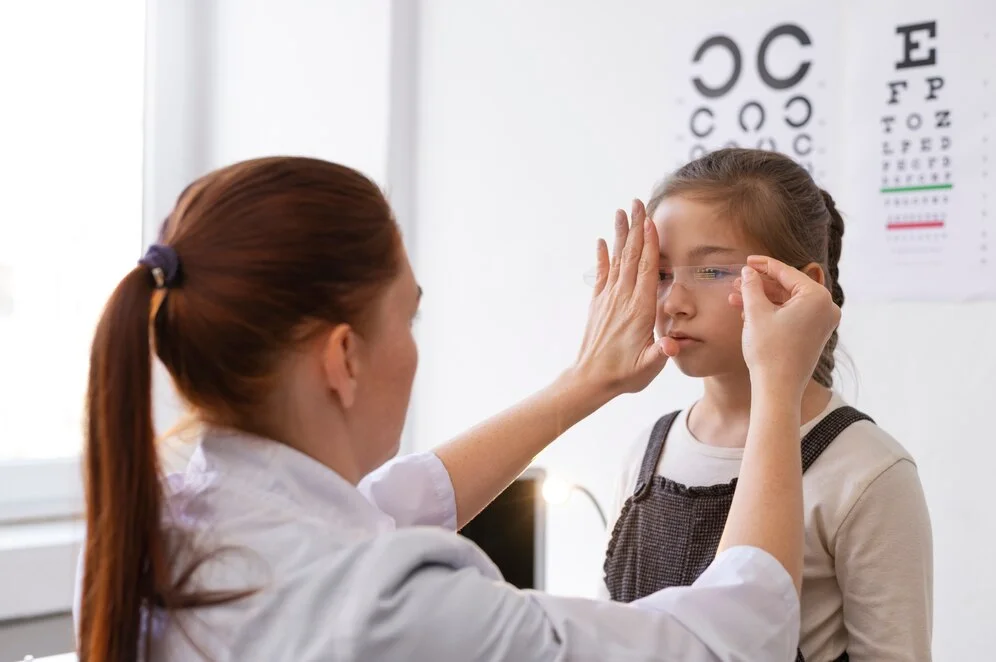Did you know glaucoma is called the 'silent thief of sight'?
Here’s what you must know to protect your vision from it.

Glaucoma is often called the "silent thief of sight" because many people have it without even realizing it.
This condition gradually damages the optic nerve: the vital connection between your eyes and your brain. Most people with glaucoma lose vision before noticing any issues with their eyes.
The most common type, primary open-angle glaucoma, occurs when fluid in the eye doesn’t drain properly. This increases pressure in the eye, damaging the optic nerve. It often starts by affecting your side (peripheral) vision, making it hard to detect early. Over time, it can take away your central vision, making everyday tasks like reading or recognizing faces difficult.
Unfortunately, lost vision from glaucoma cannot be restored. While there’s no way to stop it from developing yet, serious vision loss and blindness can often be prevented with regular eye exams. At Elite Eye Care, we provide comprehensive eye exams and personalized guidance to help prevent glaucoma and preserve your vision for the long term.
Ready to protect your vision?
Discover simple steps you can take to prevent glaucoma and ensure lasting eye health!
Glaucoma Prevention:
Simple Steps for Eye Health
Safeguarding your vision:
Don’t let glaucoma catch you off guard, prioritize your eye health. Schedule regular eye exams with your ophthalmologist, they can catch glaucoma in its early stages and create a treatment plan specific to you.
Following your doctor’s advice is just as important. Take your prescribed glaucoma medications exactly as directed to help protect your vision and prevent further damage.
Steroid Medications and Eye Health:
If you’re taking steroids for an extended period or in high doses, it’s important to know they can increase your eye pressure, especially if you have glaucoma. Steroids taken orally or applied around the eyes carry the highest risk.
Be proactive, always let your eye doctor know about any steroid medications you’re using. They can monitor your eye pressure closely and help you take steps to protect your vision.

Eat Right for Better Vision:
Nourish your eyes with the right foods! Make leafy green vegetables and colorful fruits, berries, and veggies a part of your daily diet. Packed with essential vitamins and minerals, they help protect both your body and your vision.
Did you know? Eating eye-healthy foods might be more effective than taking vitamins when it comes to preventing glaucoma. Prioritize your nutrition and give your eyes the care they deserve.
Exercising Safely:
Stay active, but be mindful of your eye health. Hard exercises that raise your heart rate can also increase your eye pressure, so it’s best to opt for moderate activities like brisk walking or regular-paced workouts. These can help lower eye pressure while boosting your overall health.
If weightlifting is part of your routine, make sure to learn proper breathing techniques from a qualified trainer to avoid unnecessary pressure on your eyes.

Safeguard your eyes from Injury:
Injuries to the eyes can lead to glaucoma. Always wear protective eyewear when playing sports or working around the house and yard. Taking this simple step can prevent damage and help keep your vision safe.
Avoiding Head-Down Positions:
If you have glaucoma or are at high risk, be cautious about placing your head below your heart for extended periods. Avoid using inversion tables or gravity boots for back pain, as these positions can significantly raise eye pressure.
If you practice yoga, some poses may also be risky, especially for those with severe glaucoma. It's always a good idea to check with your doctor about any exercises or movements that might not be safe for your eyes. Taking these steps helps protect your vision while staying active!

Sleeping in the Right Position:
If you have glaucoma, it's important to avoid sleeping with your eye pressed against the pillow or on your arm. These positions can increase eye pressure.
If you have obstructive sleep apnea (OSA), you may be at a higher risk of glaucoma or could have more severe eye issues. If you snore heavily or experience breathing pauses during sleep, it's worth getting tested for OSA. Taking care of your sleep health can help protect both your vision and overall well-being
Sun Protection for Eye Health:
Protect your eyes from potential damage caused by the sun’s UV rays, which may contribute to a type of glaucoma. Whenever you're outdoors, make sure to wear quality polarized sunglasses and a hat to shield your eyes. Taking these simple steps can help safeguard your vision while you enjoy the fresh air!

Keep your Mouth Clean.
Taking care of your oral health is more important than you might think. Some studies suggest a link between gum disease and optic nerve damage in glaucoma. Make sure to brush and floss your teeth every day, and visit your dentist regularly. Healthy habits for your teeth can contribute to better overall eye health!
Disclose Blood Pressure Medications to your Eye Doctor:
If your blood pressure gets too low during sleep, it could make glaucoma damage worse. If you take blood pressure medication at night or experience symptoms like feeling lightheaded, let your ophthalmologist know. They can consult with your primary care doctor to ensure the best approach for your health. Never change your blood pressure medication without professional guidance.
We're here to clear things up for you!
Q&A
1. How can Glaucoma be prevented?
Adopt healthy habits like managing your weight, staying active, controlling blood pressure, and avoiding smoking. These steps not only help prevent vision loss from glaucoma but also reduce the risk of type 2 diabetes and other chronic conditions.
2. What are the first signs that Glaucoma is developing?
Glaucoma usually has no early symptoms. You may gradually lose your peripheral vision without noticing. As it progresses, you might experience blurry vision or more significant vision loss. Regular eye exams are essential to detect glaucoma early.
